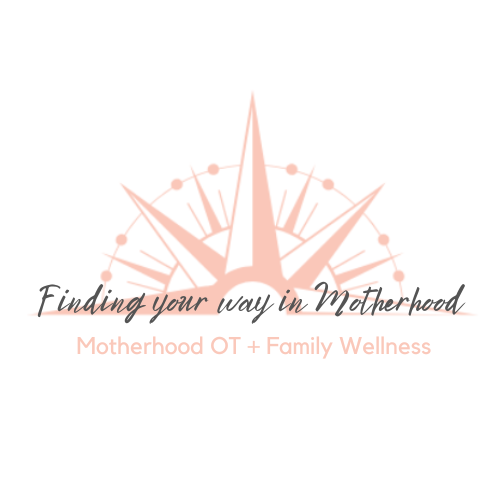OT in Maternal Health
When everything is going right, moms and moms-to-be need all the support they can get to care for themselves and their growing families.
Up to 80% of moms experience normal "baby blues” which may last up to two weeks postpartum and includes anxiety, difficulty sleeping, and mood swings.
Maternal Mental Health Disorders are the #1 complication in childbirth affecting 1 in 7 mothers and 1 in 10 fathers during baby's first year. Sleep deprivation, feeling overwhelmed and anxiety about caring for a newborn may impact a parent’s ability to adjust to their new role.
HOW DO OCCUPATIONAL THERAPISTS (OTs) HELP DURING PREGNANCY AND POSTPARTUM?
- Preparing for the transition to a new life role of caring for an infant while caring for yourself
- Promoting optimal function and positioning during self-care and caregiving occupations (i.e. feeding, dressing, lifting and carrying baby) to prevent pain and repetitive stress injuries
- Prioritizing your postpartum recovery, roles and responsibilities and realistic reintegration into daily life
- Supporting essential skills, including time management, boundaries and asking for/accepting help
- Discussing the impact of social support and exploring online and local resources specific to your needs
- Identifying practical registry/product recommendations based on your specific needs, environment and lifestyle
- Sharing relevant information on developmental milestones including sleep, feeding, motor skills, sensory processing and play
WHAT IS AN OCCUPATIONAL THERAPIST (OT)?
OT helps you do what you need and want to have meaning in your daily life.
An occupational therapist (OT) is a licensed health care professional, often part of interdisciplinary teams, utilizing a client-centered approach to address physical, emotional, psychosocial issues. In maternal health, OTs address life role transitions, role attainment in the adjustment to motherhood and how the body and mind impact function and performance in daily occupations (how people occupy their time). OTs also recognize that many occupations are shared by mother and baby and are therefore co-occupations, requiring education, skills training and support for these new demands of daily life.
OTs may also utilize health promotion and preventive models of care with individuals, groups and populations targeting optimal function and quality of life. Occupational therapists (OTs) in perinatal (the time leading up to and after birth) health, have a unique clinical and holistic lens when addressing the dynamic changes in every aspect of a woman’s life.
Questions? Let's Connect.
